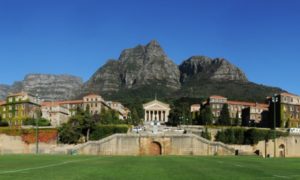
Xolela Mangcu
After decades of institutional power it is not surprising that white academics would have a sense that the institutions of higher education, particularly the predominantly white universities, belong to them by right. How can you teach history, political studies, anthropology, arts, without a single Black full professor in those departments? It is simply unconscionable in this day and age that the University of Cape Town would not have a single Black South African woman who is a full professor.
Those who resist change use the well-worn but bogus language of standards. But the standards themselves, developed as they were over decades of isolation, leave much to be desired.
The government should support academics by using more university-based research instead of the over-reliance on private consultants, many of whom are white former apartheid government employees. Most importantly, the government must have a plan, without interfering with the autonomy of the institutions; the universities must show visionary leadership on race; and all academics must commit to excellence in teaching and research. But this cannot be achieved when the bulk of the knowledge production comes from such a tiny segment of the population.
Xolela Mangcu is an associate professor of sociology at the University of Cape Town and the author of Biko: A Biography (Tafelberg, 2012)
Read more at theguardian.com


